Resource Navigation
Learn more about how CancerCare Resource Navigation can help you address barriers to care.
Support Groups
Connect with others in our free support groups led by oncology social workers.
Online
- Blood Cancers Caregiver Support Group
- Blood Cancers Patient Support Group
- Brain Tumor Caregiver Support Group
- Breast Cancer Patient Support Group
- Breast Cancer Post-Treatment Survivorship Support GroupNew
- Carcinoid and Neuroendocrine Tumor Patient Support Group
- Caregiver Support Group — Spouses/Partners
- Caring for a Loved One With Cancer Support Group
- Caring for an Adult Child With Cancer Support Group
- Colorectal Cancer Patient Support Group
- Grupo de Apoyo Para Personas Con Cáncer (en español) (Support Group for People with Cancer in Spanish)
- Gynecologic Cancers Patient Support Group
- Healing Hearts Bereavement Camp Support Group
- Healing With Words — A Therapeutic Writing Group
- Healing With Words — A Therapeutic Writing Group for GriefNew
- LGBTQ+ Cancer Patient Support Group
- Loss of a Parent Support Group
- Loss of an Adult ChildNew
- Lung Cancer Caregiver Support Group
- Lung Cancer Patient Support Group
- Melanoma Patient Support Group
- Metastatic Breast Cancer Patient Support Group
- Oncology Navigator Support GroupNew
- Ovarian Cancer Patient Support Group
- Pancreatic Cancer Caregiver Support Group
- Pancreatic Cancer Patient Support GroupNew
- Post-Treatment Survivorship Support Group
- Spouse/Partner’s Bereavement Support Group
- Triple Negative Breast Cancer Patient Support Group
- Young Adult Caregiver — Spouses/Partners Support Group
- Young Adult Caregiver Support Group
- Young Adults Who Have Lost a Loved One Support Group
- Young Adults With Cancer Support Group
- Young and Middle Adult Loss of a Spouse/Partner
Live
- Connecting With Caregivers: General Support Group (New Jersey, Video)
- Connecting With Caregivers: General Support Group (New York, Video)
- Connecting With Caregivers: Young Adult Support Group (New York, Video)
- Living Beyond Cancer: General Post-Treatment Survivorship Support Group (New York, Video)
- Living Beyond Cancer: Young Adult Post-Treatment Survivorship Support Group (New York, Video)
- Living With Cancer: A Group for Older Adults 65+ (New York, Video)
- Living With Cancer: A Journal Writing Support Group (New York and New Jersey, Video)
- Living With Cancer: General Patient Support Group (New York, Video)
- Living With Cancer: General Patient Support Group (New Jersey, Video)
- Living With Cancer: Metastatic Cancer Patient Support Group (New York, Video)
- Living With Cancer: Young Adult Patient Support Group (New York, Video)
- Living With Loss: General Bereavement Support Group (New York, Video)
- Living With Loss: Spouse and Partner Bereavement Support Group (New Jersey, Video)
- Living With Loss: Young Adult Loss of a Parent Support Group (New York, Video)
- Viviendo con Cáncer: Grupo de Apoyo Para Personas Con Cáncer (Living With Cancer: Spanish-Speaking Patient Support Group) (New York, Video)
Publications
Read or order our free Connect booklets and fact sheets offering easy-to-read information about the latest cancer treatments, managing side effects and coping with cancer.
For Any Cancer Diagnosis
Financial Assistance
Limited assistance from CancerCare is available to help with cancer-related costs.
Ask CancerCare
Every month, featured experts answer your questions about coping with cancer including specific answers to questions asked by caregivers.
For Any Cancer Diagnosis
- Q.
My 24-year-old son was recently diagnosed with cancer and I think it would be a good idea for him to join a support group. How do I convince him?
A.As a caregiver, you may feel that your son should join a support group to help him navigate the challenges he may face in regards to his diagnosis and treatment. The difficult part of all of this is that your son must be able to make that decision on his own. As a young adult facing cancer, he may need to understand what his cancer diagnosis and treatment will look like before he is able to give and get support from a group. Managing doctor’s appointments and scheduling treatments can be taxing, however addressing the benefits he may find in a support group is the first step in educating him about how a support group can help.
Support groups can offer a network of comfort and encouragement, a place of unbiased support and an environment that a young adult does not have to explain what he or she is going through because the other group members will understand. CancerCare offers a face-to-face Young Adult Patient Support Group for anyone located in the New York City area. In addition, we offer several patient online support groups. Your son may also want to reach out to Stupid Cancer, an organization that addresses several young adult cancer issues through advocacy, support and more.
As a caregiver, you may want to look into services for yourself. You can contact CancerCare’s Hopeline at 800-813-HOPE (4673) to learn more about our services for caregivers. In addition, you may find some of our publications helpful in navigating your new role as a caregiver.
- Q.
I am 28 years old and it seems like I'm the only one my age with cancer. Is there anyone else like me out there?
A.Hearing that you have been diagnosed with cancer as a young adult can be overwhelming and isolating, however you are not alone in this. The answer to your question is yes, there are other people out there like you. There are several organizations that can help you connect with other people your age who have been diagnosed with cancer. At CancerCare, we offer services for young adults who have been diagnosed with cancer through individual counseling, either face-to-face or by phone. We also offer a Young Adult Patient Support Group for anyone between the ages of 20 to 39 who is located in the New York City area.
These organizations specialize in providing support and services to young adults with cancer and might be helpful as well:
- Q.
I've finished treatment and now I feel like I'm on my own. Are there things I should be doing?
A.Finishing cancer treatment often brings mixed feelings. A sense of relief and feelings of accomplishment are normal; so, too, is uncertainty about the future. Your instinct to prepare in some way for your survivorship is a good one. Here are some steps you can take to keep both your mind and your body healthy as you continue to work with your medical team.
Ask your doctor for a Treatment Summary. This should include:
- Your type(s) of cancer with the date and stage at diagnosis
- Types of treatment received (surgery, chemotherapy drugs, radiation doses and tests performed)
- Complications experienced (side effects, transfusions, hospitalizations)
- Other services used (physical therapy, acupuncture, herbal)
Discuss with your doctor what your Follow-Up Plan will be. This should include:
- Future schedule of visits (time and date)
- Who will deliver follow-up care (and where)
- Tests that will be done and why (surveillance and preventative)
- Assessment and treatment for long- or late-term effects (e.g., lymphedema, depression, pain)
- Evaluation of current health behaviors and promotion of healthy life style
There are great resources available that can help you organize all of the above information. The LiveSTRONG Foundation has developed worksheets and a Survivorship Notebook. The National Coalition for Cancer Survivorship (NCCS) provides information about Living Beyond Cancer.
You mentioned feeling “on your own” now that your treatment is complete. This is a common feeling when treatment ends, and it’s good to know about the different types of support available to you:
- Professional support provides you with information, resources and counseling
- Peer-to-Peer support reduces your sense of isolation and helps you connect with others who share similar concerns
To tap into these types of support, speak with an oncology social worker or join a post-treatment support group at CancerCare. A social worker can also help you identify local support services.
Finally, you might find it useful to listen to these Connect Education Workshops:
- Q.
My dad was diagnosed with cancer last month. He and my mother live in another state, and I have a family of my own so I can't be there to help them out on a daily basis. What can I do to support them from far away?
A.Being a “long distance” caregiver is a unique experience that can be especially challenging. Working to find balance between your own needs and the needs of a loved one with cancer can feel overwhelming for anyone in the caregiver role. But remember, there are many ways you can be supportive and involved in your loved one’s care regardless of the distance between you.
Offering emotional support is one of the most helpful things that you can do for your loved one. Simply checking in and letting your dad know that you are thinking him can go a long way; call, email, Skype, send a card or visit when you can. Those reminders not only show that you care, but may also leave you feeling more connected.
You can also help your parents with day-to-day tasks like managing bills, paperwork and getting organized. Similarly, you can help them navigate the medical system. Dealing with insurance companies, remembering doctors’ appointments and accessing resources can be overwhelming. You can help your family with this by taking on some of the responsibility, communicating with their doctors and nurses, and staying informed. This can alleviate some of the practical challenges for them, while keeping you in the loop.
There are also programs such as My Cancer Circle which exist to help caregivers easily enlist additional support. This online forum creates a sense of community that helps the caregiver, but also ensures that their loved ones needs are met. Family, friends and community members are often looking for ways to help: My Cancer Circle allows them to sign up for specific tasks, like cooking meals or providing transportation, which can help them feel useful and give you some respite and comfort in knowing that these needs are covered.
And lastly, it’s important that you take good care of yourself and your family. Know that there is support available to you, too. CancerCare offers free counseling and support groups that specifically address the needs of caregivers. We offer those supportive services in person, over the phone and online. These services can help you to take care of yourself and your needs, and put you in touch with other caregivers who can relate. This support can be a comforting and powerful experience, so please call us at 800-813-4673 for more information.
- Q.
What are support groups and how can they help me? How do I know if they're right for me?
A.A cancer diagnosis can be very isolating. Regardless of whether you are a patient or a caregiver, you can be immersed in reacting and adjusting to various aspects of the disease. The responsibility to find, manage and pay for care can be hugely overwhelming. It’s hard to feel hopeful, or have any sense of confidence in your ability to cope or make appropriate decisions, if you are feeling small and powerless and very much alone in the experience.
That’s where a support group can be helpful. It provides a chance to meet and interact with other people who can understand your experience. While friends and family members might be uncomfortable, maybe feeling useless or scared, not knowing what to say or do, the members of the support group, with the guidance of a trained moderator, can be there with you in your process.
In addition to lessoning one’s sense of isolation, support groups can be a source of valuable information. Not surprisingly, members find that sharing resources and coping skills can be highly rewarding, whether on the giving or the receiving end of the transaction. Topics often include where to find reliable medical information, how to communicate with doctors, challenges of treatment and coping techniques. Much of one’s experience in a support group depends on the chemistry of who is in the group and how it is moderated. One thing common to most groups is the potential for strong emotional expression, which can be uncomfortable for some people. Other factors to consider are how you feel sharing things about yourself in a group of people, and whether or not you can meet any attendance guidelines the group might have.
Bottom line? If you are feeling alone and needing information and emotional support, a group might be a valuable way of connecting with people to help you cope with your situation. If you have questions, reach out to the moderator so you can get the information to make an informed decision.
- Q.
I'd like to organize a support group for cancer survivors and people facing a cancer diagnosis. What do I need to do to get one started?
A.Support group has become a much broader term than many of us realize. What type of support group do you intend to start? At CancerCare, we offer three modalities of support group: including in-person, which is the format that most of us think of when we think of a support group; telephone, which is more like a weekly conference call that is moderated by an oncology social worker; and on-line, which is a message board format. Each modality has different features as well as limitations.
After deciding what modality of group will be most beneficial to your potential group members, you will also want to determine the content, structure and policies. Is your group about members sharing their experiences? Do you want an educational component with guest speakers? How often are you going to meet and where? Who is eligible to participate in the group? Who is going to moderate the group? What are the rules for discussion and maintaining privacy? What mechanisms are in place to enforce your group’s guidelines?
Familiarize yourself with existing groups. Local medical centers often offer support groups that are open to the community. Contact national advocacy organizations for specific cancer diagnoses to find out if they have a chapter where you live.
- Q.
I'd like more information about how to help a close friend being treated for cancer. I'm also wondering if a support group could help me too?
A.One of the most powerful ways to help support a friend with cancer is to be emotionally available. Providing a listening ear and an openness to talk about even the most difficult of topics can provide your friend with a real sense of comfort and give them a safe place to share whatever is on his or her mind. Know that you don’t always have to know exactly what to say; simply being present and supportive goes a long way.
Offering specific tasks may help your friend to know exactly what you can provide and when. Caregivers can be helpful in day-to-day chores like laundry and transportation, and can also help coordinate medical appointments, get to know the medical team and advocate for their loved one’s needs both health-related and otherwise. CancerCare’s publication Caregiving for Your Loved One With Cancer offers more information about how to be helpful.
Many caregivers find that support groups are helpful as they give you a space to process your own feelings and get support and insight from others who can relate. Support groups often provide practical tips on managing the tasks of caregiving, help in finding balance between caring for yourself and a loved one, and can provide a powerful level of camaraderie. Seeking support by connecting with a support group or counseling can be a healthy outlet that many caregivers appreciate and learn from. CancerCare offers free counseling and support groups for caregivers.
For more information and resources about caregiving, the National Alliance for Caregiving and Caregiver Resource Directory are both informative and helpful.
- Q.
What are the different types of online groups I can join?
A.Just like support groups that meet face-to-face, there are several different kinds of support groups that “meet” on the internet. Some of these groups are offered through social media platforms like Facebook, or make use of emerging technologies like virtual reality. But traditionally and most commonly, online support groups are split into the following categories:
Chat Group – In online chat, the conversation takes place in real-time, which means that when you type in a message, the other members of the group see it instantly and can respond. A chat group is usually held at a specific time and day.
Listserv – This kind of group allows its members to email each other with questions and comments. Because emails are automatically sent to everyone on the list, the number of messages you receive each day can vary and be high at times.
Message Board – CancerCare offers this type of support group, which features a bulletin board-style forum that is accessible to members, 24 hours a day, seven days a week. Participants can write comments and questions, and read and respond to one another. A message board is usually more flexible, as members can post whenever it’s most convenient for them.
Because participating in an online group is anonymous, some people find it a bit impersonal and prefer meeting face-to-face. Other people may prefer the anonymity and feel more at ease sharing with others. That being said, one unique and positive feature of online groups is that they allow people to connect with others in similar circumstances – regardless of where they live. For instance, CancerCare’s online groups are offered by specific cancer diagnoses and populations to ensure that participants are getting support from a community of peers.
- Q.
Are there support groups geared towards grandparents of a child with cancer?
A.While there may not be a local support group geared specifically toward grandparents of children with cancer, it is probably worth inquiring about caregiver support groups at your grandchild’s treatment center. At CancerCare, a grandparent whose grandchild has been diagnosed with cancer is eligible for any of our caregiving groups, whether in-person, over the telephone or online.
Like other caregivers, grandparents are likely to have a hard time adjusting to their grandchild’s diagnosis. You may need a place to express intense emotions, including fear, anger, sadness or grief in the presence of people who have had a similar experience. A support group can also be a place to exchange helpful information on coping and various other means of supporting oneself and one’s family.
Whether or not you find an accessible support group that specifically matches your demographic, it can be very helpful to connect with other people who care for a person with cancer. If there are no support groups in your area, perhaps you can organize an informal group that meets at a church or community senior center.
The British organization The Children’s Cancer and Leukaemia Group provides helpful information for grandparents of young children with cancer, and includes information on various ways support yourself, your children and your grandchildren in reacting and adjusting to your grandchild’s diagnosis.
- Q.
I am seeking a support group for children under age 12 whose single mother is in stage 4 cancer. Please provide any available options.
A.You should check with the mother’s treatment center to see if they provide a children’s support group. You can also contact your local affiliate of Cancer Support Community in order to get more information about what type of children’s program they offer.
CancerCare provides a number of publications, including Helping Children Understand Cancer: Talking to Your Kids About Your Diagnosis that address helping children who have a family member with cancer. Communication is the number one priority, since even young children can often sense when something is wrong, and if no one explains what is happening, will often imagine something worse than it really is, or even blame themselves. How and how much is communicated depends on the child’s unique personality, but providing an ongoing chance for them to express themselves, asking questions and sharing their feelings, is helpful for children of all ages.
Finally, it’s important to let children know that even though some other things around the house are probably going to be different for a while, that the child’s parents/grandparents/family members love for them hasn’t changed a bit.
- Q.
Recently my dad was diagnosed with cancer, and I've chosen to take on being his primary caregiver. This is a emotional and stressful experience. I am staying at their house 3 hours away from my husband and friends, making it more difficult. Every online support group is geared towards young adult spouses, and I'm one year too old to qualify. Do you know of any support groups online for my situation?
A.Being a primary caregiver can absolutely be an emotional and stressful experience – and in your case, made more difficult by the fact that you are also far from your husband and friends. Joining a support group is a wonderful first step in finding a community of others who “get it.” Being connected with people who understand and who are possibly facing some of the same struggles and questions can be hugely meaningful. I am so glad you’re reaching out for this kind of support and please know that we do offer an online group for you.
Our Online Young Adult Caregiver Support Group would be a great option; the majority of participants are caring for a parent just as you are. While this group and our other young adult groups are usually aimed at people between the ages of 20 and 39, we are flexible. For someone like yourself who is still so close in age and prefers this type of group, we can certainly make it available to you. To join, we do ask that you complete a short online screening to confirm that the group will meet your needs and expectations.
I also want to mention that CancerCare offers short-term telephone counseling provided by licensed oncology social workers. Many of our online group members choose to supplement their group experience with individual counseling. If you are interested in learning more or possibly enrolling, I encourage you to call CancerCare’s Hopeline at 800-813-4673. All the calls are answered by oncology social workers who can get you connect you with support. Our hours are Mondays to Thursdays 9 a.m. -7 p.m. EST and Fridays 9 a.m. -5 p.m.
- Q.
Can I join an online support group if I live outside of the U.S.?
A.Thank you for your interest in our online support groups. At this time, CancerCare’s online support groups are only available to people residing within the United States (including Puerto Rico and U.S. territories).
For more information about support groups, read our publication “Why Join a Support Group?”.
- Q.
Is there a support group for long term adult survivors with serious late effect problems, such as radiation plexopathy?
A.CancerCare offers online support groups for adult cancer survivors who are still within 2 years of completing their cancer treatments. The Post Treatment Survivorship Support Group is for participants of all ages, while the Young Adult Post Treatment Survivorship Support Group is for people ages 39 and under. While not specifically focused on radiation plexopathy, both groups address the issue of long term treatment side effects because it is such a common challenge for survivors as they transition to life after cancer. Our support groups also discuss other survivorship concerns including fears of recurrence, creating new daily routines including the transition back to work or school, acclimating to physical changes experienced during treatment, as well as other topics that the group moderator or group members themselves may raise in the course of sharing more about their experiences.
To join one of our groups, we do ask that you complete a short online screening to confirm that the groups will meet your needs and expectations.
But if you are interested in seeking out more specific support for radiation plexopathy, there is a resource list featured on Cancer Survivors Network that includes links to personal blogs as well as a private Facebook group. Please be aware that in most cases, a private FB group is not moderated by a trained professional and your confidentiality is not guaranteed.
- Q.
My daughter is 21 years old and just had her third surgery for cancer in 11 years. The doctors took a wait and see approach the last two times, but they are currently doing a molecular study to determine treatment. I don't know how to be there for my daughter and keep encouraging her. She is lacking in social skills after all these years and she refuses to do therapy. How do I encourage her to maybe get involved through a website or a support group? She needs more than just her mom.
A.As your daughter prepares for her next steps in treatment, it is understandable that you would like her to gather support for herself. A cancer diagnosis can be isolating and having additional outlets of support can potentially benefit her in a number of ways. However, as difficult as it may be to accept, the decision to seek this support must be her own.
What you can do is make her aware of the many resources available to her. Your daughter may not be open to the idea of counseling for instance, but she may be more receptive to a support group of peers. Joining a group can offer comfort and community, and the sense of being understood by others facing similar challenges. Groups can also help participants learn new ways of coping and offer hope. CancerCare offers a face-to-face Young Adult Patient Support Group for anyone located in the New York City area. In addition, we offer an online Young Adult Patient Support Group for anyone living in the United States. Your daughter may also contact Stupid Cancer, an organization that addresses young adult cancer issues through advocacy, support and more.
Finally, you may want to consider connecting with your own support. CancerCare offers a number of services for caregivers like yourself, including our online Caring for an Adult Child with Cancer Support Group. We also offer a number of publications and informational podcasts about navigating the caregiver experience. For more information, you can contact CancerCare’s Hopeline at 800-813-HOPE (4673).
- Q.
Is there a support group for newly diagnosed people? I'm 55 and just diagnosed with soft tissue sarcoma on my right leg, below the knee. So many questions! How long can I keep working; how do I tell my friends and relatives; how do I tell my workmates and supervisors; how will I cope with all the medical bills?
A.Being newly diagnosed is a chaotic time as you’re taking in a lot of information and figuring out the details of your diagnosis and treatment plan. Joining a support group or reaching out to a peer matching program might be a good way to learn from other patients. At this time, CancerCare does not have a group for newly diagnosed patients or for sarcoma. Our support groups are offered based on demand and we have not had enough members to create these groups to be active and helpful to participants. But, I can make some suggestions to help you get connected to support and information.
First, the following organizations focus on sarcoma education, resources and support:
- Sarcoma Alliance (view their support group resources)
- Sarcoma Foundation of America (lists this as an online group option: inspire.com/groups/sarcomaconnect)
- Sarcoma Coalition
You can also try www.smartpatients.com, which offers many different groups for patients and caregivers affected by specific illnesses including sarcoma.
Peer matching is another great option to connect with another patient with a similar diagnosis. Someone who has been through this will be able to give you suggestions, answer questions and tell you what helped them during their diagnosis. I would suggest:
I also wanted to share some helpful information from our programs. CancerCare has couple of publications and workshops that cover the questions you mentioned:
Specific to sarcoma:
Managing Costs of Cancer:
Workplace resources:
You may also want to look at www.cancerandcareers.org, which can provide you with helpful suggestions about navigating the workplace and employee rights during a cancer diagnosis.
I hope these suggestions are helpful and would encourage you to reach out to CancerCare’s Hopeline at 800-813-4673. All the calls are answered by oncology social workers who can connect you with support and resources. Our hours are Mondays to Thursdays 10 a.m. - 6 p.m. EST and Fridays 10 a.m. - 5 p.m. EST.
- Q.
We are looking for a support group for me the caregiver of my husband and my husband who is the one with cancer.
A.CancerCare offers live Zoom-based support groups for people in New York and New Jersey, and an online message board support group program for people located anywhere in the United States. For more information about these group options, please visit https://www.cancercare.org/support_groups.
If you are looking for a live support group in your area, you may have additional options. The treatment center where your spouse is receiving treatment may offer support groups, and the Cancer Support Community may have a clubhouse near you. Additionally, many diagnosis-specific organizations provide support groups to people impacted by a specific cancer diagnosis (for example, the Colorectal Cancer Alliance or Zero Cancer for Prostate Cancer.
For Cervical Cancer
- Q.
I'd like to connect with other women who have cervical cancer. I feel like they'll understand me best. Can you tell me where I should look?
A.Support groups are a wonderful opportunity to speak with other women diagnosed with cervical cancer. Joining a group can provide a safe environment to share thoughts, ideas and feelings with others in a similar circumstance, and members in a support group often feel less isolated during their cancer experience. Support groups may be available face-to-face, over the telephone, or online.
CancerCare offers a free, private online support group for individuals in treatment for gynecologic cancer. This message-board style group is moderated by an oncology social worker, and is available 24/7 during the group cycle.
For individuals you have completed treatment for any diagnosis, you can consider our post-treatment online support group.
If you have a social worker at your hospital or treatment center, they are often very knowledgeable about any face-to-face groups in your local area. Often, treatment centers run their own support groups that may either be focused on a specific diagnosis or may be more mixed in composition. You can also consider “peer matching”, a service in which you would be connected to another individual who has undergone similar treatment for cervical cancer so that you can have one-on-one phone conversations. Two organizations providing this service include Cancer Hope Network and Imerman Angels.
For Colorectal Cancer
- Q.
My mother was diagnosed with stage 3 colon cancer and I'm worried she is pulling away from those who care about her. I think it might be good for her to talk to others who've been diagnosed to get some guidance. Where should she go?
A.Your question is a good example of how a cancer diagnosis affects the entire family, not just the loved one who was diagnosed. Both caregivers and patients share similar challenges, although with different perspectives. Speaking with people in a similar situation can often be helpful. Many hospitals offer support groups, so I would begin your search by speaking with a hospital social worker who can let you know about available support groups. If you are having difficulty finding local face-to-face support groups or if traveling is difficult, CancerCare offers both telephone and online support groups for colorectal cancer patients and for caregivers.
There are additional organizations that offer support groups, information on how to connect with a local support group, or “buddy” matching programs:
- Colon Cancer Alliance
- American Cancer Society
- The Cancer Support Community
- United Ostomy Associations of America
We know that “one size does not fit all,” and it’s important to determine the type of support services most beneficial to the person in need. A support group can be helpful, and often individual counseling may be more appropriate. Introduce this information to your mom and allow her to ask questions and share her decision with you. And don’t forget to consider support for yourself. Our support group participants tell us they are glad they took the chance to connect with others, and report that they now have a greater understanding of their treatment, side-effects, options, medications, and emotions.
- Q.
I'd like to meet people with colon cancer who understand what it's like, but I can't seem to find anything near where I live, just groups for people with any type of cancer. Can you help?
A.A cancer diagnosis can feel very isolating. Wanting to establish a caring community is a wonderful way to find support from other people going through a similar experience while at the same time reducing isolation. It is often difficult to find face-to-face groups specifically for people with colorectal cancer. CancerCare understands the importance of staying connected with others and offers colorectal cancer patient groups.
These groups are both informative and supportive. Group discussions cover a range of topics such as dealing with tough side effects, not wanting to be a burden to family and friends, having limited supports both emotionally and financially, being disappointed in family and friends to communicating with one’s medical team and where to find additional supports. Group sessions can be very serious but also can be light and humorous. We emphasize being compassionate and empathetic with all of our group interactions.
Please remember that you are not alone. CancerCare support services are there to help you.
For Sarcoma
- Q.
A family member has been diagnosed and I think she should see someone who specializes in treating sarcoma (I don't think this is currently the case). Do you know where I can find that information? Also, do you offer a support group for people with sarcoma?
A.You raise an important question regarding the importance of specialized expertise in the diagnosis and treatment of sarcoma, which is a cancer of the bone or connective tissues, including bone, fat, muscle, blood vessels, nerves, deep skin tissue and cartilage.
Because sarcoma is rare, there is an initial challenge of determining which bone and soft-tissue tumors are sarcomas and which are benign (not cancerous). That is why it is important, wherever possible, to seek advice at sarcoma treatment centers. Experts at these centers have the latest information and important experience in diagnosing and treating this type of cancer. A list of some of these centers can be found on the Sarcoma Alliance website, www.sarcomaalliance.org. Your doctor may also be able to refer you to a nearby sarcoma treatment center.
The Sarcoma Alliance offers list of support groups. At this time, CancerCare does not offer a support group for people with sarcoma, but anyone affected by sarcoma can join one of our other cancer-related groups, including those for young adults and caregivers. You can find all of CancerCare’s sarcoma-related resources, including workshops and publications, on our website.
For Rare Cancers
- Q.
My brother was diagnosed with salivary gland cancer and it's supposedly rare. How can I find other patients or organizations that can help support him?
A.A cancer diagnosis can feel very isolating, particularly when the diagnosis is a rare one. Helping your brother find community and social connection through a support group is one way to help to reduce those feeling of isolation. In addition, groups can be a valuable source of emotional support, resources, and information from others going through similar experiences. While it may be difficult to find a group specific to people with salivary gland cancer, there are many excellent supportive resources available.
For example, CancerCare offers a number of face-to-face, telephone and online support groups. To learn more about our current offerings and how to register, you can contact our Hopeline at 800-813-HOPE (4673) to speak to one of our professional oncology social workers. Other organizations like the Rare Cancer Alliance offer patient forums geared towards those with rare conditions.
You may also want to explore peer-matching services offered by organizations like Cancer Hope Network, Imerman Angels and WhatNext. They work to match patients with one-to-one support provided by those with a similar cancer history.
Finally, disease-specific organizations (e.g., The Oral Cancer Foundation, Support for People with Oral and Head and Neck Cancer) can provide additional guidance and information. They frequently offer their own patient forums in addition to other services like education, advocacy and resource referrals.
- Q.
I have a very rare cancer, and it is called well-differentiated neuroendocrine tumor (carcinoid). I have been told there is not a cure for this type of cancer, but I am hoping to find a support group (or people to chat or do activities with). Can you help me?
A.A support group can be a wonderful way to find social connection, resources and information from others going through similar experiences. Although your cancer is rare, there are still excellent supportive resources available.
CancerCare offers a free, private online support group for individuals in treatment for carcinoid and neuroendocrine tumors This message-board style group is moderated by an oncology social worker, and is available 24/7 during the group cycle. To learn more and register, please visit the support group page.
There are other organizations that provide excellent support as well. The Carcinoid Cancer Foundation has patient forums in addition to other services like resource referrals, education and advocacy. The Rare Cancer Alliance offers patient forums geared towards those with rare conditions; they offer one for those diagnosed with carcinoid tumors and one for those with neuroendocrine tumors. Similarly, the Association of Cancer Online Resources (ACOR) hosts groups through an email listserv, including a Carcinoid Cancer Group.
You may also want to explore “peer-matching” services offered by organizations like Cancer Hope Network, Imerman Angels and WhatNext. They work to match patients with one-to-one support provided by those with a similar cancer history.
Finally, CancerCare offers a number of general face-to-face, telephone, and online support groups that may meet your needs. To learn more about our current offerings and how to register, you can contact our Hopeline at 800-813-HOPE (4673) to speak to one of our professional oncology social workers.
For Carcinoid Tumor
- Q.
I have a very rare cancer, and it is called well-differentiated neuroendocrine tumor (carcinoid). I have been told there is not a cure for this type of cancer, but I am hoping to find a support group (or people to chat or do activities with). Can you help me?
A.A support group can be a wonderful way to find social connection, resources and information from others going through similar experiences. Although your cancer is rare, there are still excellent supportive resources available.
CancerCare offers a free, private online support group for individuals in treatment for carcinoid and neuroendocrine tumors This message-board style group is moderated by an oncology social worker, and is available 24/7 during the group cycle. To learn more and register, please visit the support group page.
There are other organizations that provide excellent support as well. The Carcinoid Cancer Foundation has patient forums in addition to other services like resource referrals, education and advocacy. The Rare Cancer Alliance offers patient forums geared towards those with rare conditions; they offer one for those diagnosed with carcinoid tumors and one for those with neuroendocrine tumors. Similarly, the Association of Cancer Online Resources (ACOR) hosts groups through an email listserv, including a Carcinoid Cancer Group.
You may also want to explore “peer-matching” services offered by organizations like Cancer Hope Network, Imerman Angels and WhatNext. They work to match patients with one-to-one support provided by those with a similar cancer history.
Finally, CancerCare offers a number of general face-to-face, telephone, and online support groups that may meet your needs. To learn more about our current offerings and how to register, you can contact our Hopeline at 800-813-HOPE (4673) to speak to one of our professional oncology social workers.
For Neuroendocrine Tumors
- Q.
I have a very rare cancer, and it is called well-differentiated neuroendocrine tumor (carcinoid). I have been told there is not a cure for this type of cancer, but I am hoping to find a support group (or people to chat or do activities with). Can you help me?
A.A support group can be a wonderful way to find social connection, resources and information from others going through similar experiences. Although your cancer is rare, there are still excellent supportive resources available.
CancerCare offers a free, private online support group for individuals in treatment for carcinoid and neuroendocrine tumors This message-board style group is moderated by an oncology social worker, and is available 24/7 during the group cycle. To learn more and register, please visit the support group page.
There are other organizations that provide excellent support as well. The Carcinoid Cancer Foundation has patient forums in addition to other services like resource referrals, education and advocacy. The Rare Cancer Alliance offers patient forums geared towards those with rare conditions; they offer one for those diagnosed with carcinoid tumors and one for those with neuroendocrine tumors. Similarly, the Association of Cancer Online Resources (ACOR) hosts groups through an email listserv, including a Carcinoid Cancer Group.
You may also want to explore “peer-matching” services offered by organizations like Cancer Hope Network, Imerman Angels and WhatNext. They work to match patients with one-to-one support provided by those with a similar cancer history.
Finally, CancerCare offers a number of general face-to-face, telephone, and online support groups that may meet your needs. To learn more about our current offerings and how to register, you can contact our Hopeline at 800-813-HOPE (4673) to speak to one of our professional oncology social workers.
For Breast Cancer
- Q.
Is there a way to find triple-negative breast cancer specialists? And are there specific support groups or programs to speak with women with triple-negative breast cancer?
A.When coping with a diagnosis of triple-negative breast cancer, it is important to ensure that your medical team is well-informed about the latest research and best practices. While we are unable to recommend or endorse a specific doctor, here are some suggestions for seeking out a breast cancer specialist who is experienced with treating triple-negative breast cancer.
The National Cancer Institute has designated cancer centers throughout the United States and provides information on doctors practicing in your area. You can access their online database or call them at 800-4-CANCER.
Ask your current doctor for a referral. Many people may feel hesitant to ask for a second opinion for fear of creating an uncomfortable relationship with the doctor. But be assured that a second opinion is considered a routine and necessary component of one’s health care plan. In fact, most medical professionals expect their patients to receive a second opinion.
Researching clinical trials in your area will allow you to learn which doctors are participating, and get an idea of specialists in the field. A free, confidential resource to locate clinical trials accepting women with triple-negative breast cancer is The Clinical Trials Matching Service website and helpline: 877-769-4827.
Contact the local county medical society, hospitals or breast cancer center in your area.
It is perfectly acceptable to ask doctors how many of their patients have TNBC, and how familiar they are with treating this subtype of breast cancer.
To answer your second question, getting support from other women who have experienced triple negative breast cancer can be a valuable tool to feel less alone and more empowered. Organizations such as Living Beyond Breast Cancer and the American Cancer Society provide a service called peer matching, in which you can be paired with a volunteer who had a similar diagnosis. The Triple Negative Breast Cancer Foundation has a very active online forum where people impacted by TNBC discuss various topics. There may be support groups in your area where you can connect with peers, as well. Your oncology social worker is a good resource for local referrals.
For Triple Negative Breast Cancer
- Q.
Is there a way to find triple-negative breast cancer specialists? And are there specific support groups or programs to speak with women with triple-negative breast cancer?
A.When coping with a diagnosis of triple-negative breast cancer, it is important to ensure that your medical team is well-informed about the latest research and best practices. While we are unable to recommend or endorse a specific doctor, here are some suggestions for seeking out a breast cancer specialist who is experienced with treating triple-negative breast cancer.
The National Cancer Institute has designated cancer centers throughout the United States and provides information on doctors practicing in your area. You can access their online database or call them at 800-4-CANCER.
Ask your current doctor for a referral. Many people may feel hesitant to ask for a second opinion for fear of creating an uncomfortable relationship with the doctor. But be assured that a second opinion is considered a routine and necessary component of one’s health care plan. In fact, most medical professionals expect their patients to receive a second opinion.
Researching clinical trials in your area will allow you to learn which doctors are participating, and get an idea of specialists in the field. A free, confidential resource to locate clinical trials accepting women with triple-negative breast cancer is The Clinical Trials Matching Service website and helpline: 877-769-4827.
Contact the local county medical society, hospitals or breast cancer center in your area.
It is perfectly acceptable to ask doctors how many of their patients have TNBC, and how familiar they are with treating this subtype of breast cancer.
To answer your second question, getting support from other women who have experienced triple negative breast cancer can be a valuable tool to feel less alone and more empowered. Organizations such as Living Beyond Breast Cancer and the American Cancer Society provide a service called peer matching, in which you can be paired with a volunteer who had a similar diagnosis. The Triple Negative Breast Cancer Foundation has a very active online forum where people impacted by TNBC discuss various topics. There may be support groups in your area where you can connect with peers, as well. Your oncology social worker is a good resource for local referrals.
For Metastatic Breast Cancer
- Q.
Is there a way to find triple-negative breast cancer specialists? And are there specific support groups or programs to speak with women with triple-negative breast cancer?
A.When coping with a diagnosis of triple-negative breast cancer, it is important to ensure that your medical team is well-informed about the latest research and best practices. While we are unable to recommend or endorse a specific doctor, here are some suggestions for seeking out a breast cancer specialist who is experienced with treating triple-negative breast cancer.
The National Cancer Institute has designated cancer centers throughout the United States and provides information on doctors practicing in your area. You can access their online database or call them at 800-4-CANCER.
Ask your current doctor for a referral. Many people may feel hesitant to ask for a second opinion for fear of creating an uncomfortable relationship with the doctor. But be assured that a second opinion is considered a routine and necessary component of one’s health care plan. In fact, most medical professionals expect their patients to receive a second opinion.
Researching clinical trials in your area will allow you to learn which doctors are participating, and get an idea of specialists in the field. A free, confidential resource to locate clinical trials accepting women with triple-negative breast cancer is The Clinical Trials Matching Service website and helpline: 877-769-4827.
Contact the local county medical society, hospitals or breast cancer center in your area.
It is perfectly acceptable to ask doctors how many of their patients have TNBC, and how familiar they are with treating this subtype of breast cancer.
To answer your second question, getting support from other women who have experienced triple negative breast cancer can be a valuable tool to feel less alone and more empowered. Organizations such as Living Beyond Breast Cancer and the American Cancer Society provide a service called peer matching, in which you can be paired with a volunteer who had a similar diagnosis. The Triple Negative Breast Cancer Foundation has a very active online forum where people impacted by TNBC discuss various topics. There may be support groups in your area where you can connect with peers, as well. Your oncology social worker is a good resource for local referrals.
For Melanoma
- Q.
What support groups are there for people with skin cancer? My brother was diagnosed two months ago and I think he could benefit from one.
A.It’s never easy to adjust to a cancer diagnosis. Everything changes when you hear the words “you have cancer.” It is a time when many people need extra support. Speaking to an oncology social worker can help reduce the stress of adjusting to a diagnosis and assist with understanding treatment options, side effects, disclosure and finances/insurance issues. I always emphasize that reaching out for help is a sign of strength. Oncology social workers are trained in how a diagnosis of cancer affects a person and his or her family and friends. They are also trained to help cancer patients and their families tackle the problems that accompany the disease, such as the financial demands, the physical changes, social adjustment and psychological impact, and care. Adjusting to and dealing with the diagnosis is an important part of the healing process.
Cancer often makes people feel isolated. Joining a support group allows people with cancer to feel less alone because they are talking with others who are experiencing similar fears and concerns. They can speak openly and freely without feeling that they are being a burden to friends and loved ones. Please know, your brother would have to call himself for these services.
CancerCare can provide that help in many ways. Currently, we have an online group for people with melanoma. Our registration process is streamlined so it is very user friendly. We can also provide individual telephone counseling. All of our services are free of charge, and our services are for both the people with cancer and their loved ones.
The Cancer Hope Network is a way to connect, by telephone, with an individual with a similar diagnosis. Their volunteer survivors are trained to talk you through some of the common difficulties that come along with any diagnoses.
Please remember that you and your brother are not alone. CancerCare’s services are here to help you.
For Skin Cancer
- Q.
What support groups are there for people with skin cancer? My brother was diagnosed two months ago and I think he could benefit from one.
A.It’s never easy to adjust to a cancer diagnosis. Everything changes when you hear the words “you have cancer.” It is a time when many people need extra support. Speaking to an oncology social worker can help reduce the stress of adjusting to a diagnosis and assist with understanding treatment options, side effects, disclosure and finances/insurance issues. I always emphasize that reaching out for help is a sign of strength. Oncology social workers are trained in how a diagnosis of cancer affects a person and his or her family and friends. They are also trained to help cancer patients and their families tackle the problems that accompany the disease, such as the financial demands, the physical changes, social adjustment and psychological impact, and care. Adjusting to and dealing with the diagnosis is an important part of the healing process.
Cancer often makes people feel isolated. Joining a support group allows people with cancer to feel less alone because they are talking with others who are experiencing similar fears and concerns. They can speak openly and freely without feeling that they are being a burden to friends and loved ones. Please know, your brother would have to call himself for these services.
CancerCare can provide that help in many ways. Currently, we have an online group for people with melanoma. Our registration process is streamlined so it is very user friendly. We can also provide individual telephone counseling. All of our services are free of charge, and our services are for both the people with cancer and their loved ones.
The Cancer Hope Network is a way to connect, by telephone, with an individual with a similar diagnosis. Their volunteer survivors are trained to talk you through some of the common difficulties that come along with any diagnoses.
Please remember that you and your brother are not alone. CancerCare’s services are here to help you.
For Ovarian Cancer
- Q.
I would like to find a support group for my wife. She was recently diagnosed with ovarian cancer. Can you please provide information regarding this specific type of support group?
A.Support groups are a great way for people to connect around shared experiences, provide support or encouragement and have an outlet where others understand the feelings and challenges that come with a cancer diagnosis. CancerCare offers an online support group for people diagnosed with ovarian cancer. The groups are moderated by an oncology social worker who provides support, resources and guides the conversation. Our groups do not have a particular meeting time and do not include video chat or live chat functionality, such as Zoom. If she is interested in registering, you can direct her to this link: https://onlinegroups.cancercare.org/Account/Register
This same platform also offers caregiver support groups, in case you or anyone in your family would like to connect with support.
I also suggest Share Cancer Support, an organization that focuses on supporting patients with breast, ovarian and gynecological cancers.
For Lung Cancer
- Q.
Are there any live video chat support groups available for people specifically with lung cancer? I'm trying to help a loved one find this type of support. Both live chat and lung cancer specific are important to her.
A.CancerCare offers two types of support groups, one is online and the other is via live, video chat. Our online support groups take place on a message board that is open to members 24/7 and you can post in the group whenever is convenient. The groups are moderated by an oncology social worker who provides support, resources and guides the conversation. Our online groups do not have a particular meeting time and do not include video chat or live chat functionality, such as Zoom. The groups that are offered via video chat are only available to those residing in NY and NJ, in accordance with our social work licensing laws. I have noted the link to our online group for lung cancer and our live chat, video group, depending on where your loved one lives:
Lung Cancer Patient Support Group - Online: https://www.cancercare.org/support_groups/2-lung_cancer_patient_support_group
Living With Cancer: Lung Cancer Patient Support Group - NY and NJ: https://www.cancercare.org/support_groups/73-living_with_cancer_lung_cancer_patient_support_group
CancerCare also has a partnership with a lung cancer advocacy organization called LUNGevity. They offer their own series of virtual support meetups for patients and caregivers. You can see the schedule and register by following this link: https://www.lungevity.org/for-patients-caregivers/support-services/virtual-meetups
LUNGevity also offers peer matching that might be helpful to your loved one. This allows a patient or caregiver to connect with another lung cancer patient or caregiver to get support and encouragement during their cancer journey. Here is the link to that program: https://www.lungevity.org/for-patients-caregivers/support-services/peer-to-peer-mentoring/lifeline-support-partners
I hope this information is helpful. If you would like more information about CancerCare programs or ideas about other support beyond CancerCare, I encourage you to call CancerCare’s Hopeline at 800-813-4673 for more immediate “live” guidance at any point in the future. All the calls are answered by oncology social workers who can offer information, support and resource referrals after learning a bit more about your situation and needs. Our Hopeline hours are Mondays through Thursdays 10 a.m. -5:45 p.m. ET and Fridays 10 a.m. - 4:45 p.m.
Specialized Programs
CancerCare offers specialized programs to address specific populations and concerns.
Coping Circle Workshops
Virtual educational and supportive workshops led by oncology social workers and qualified co-facilitators. These workshops cover numerous topics and are offered in English and Spanish.
Additional Resources
Organizations
American Brain Tumor Association
American Cancer Society
Us TOO International Prostate Cancer Education & Support Network

 Answered by
Answered by 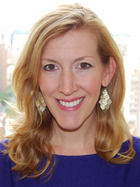 Answered by
Answered by 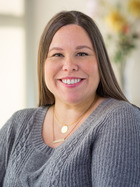 Answered by
Answered by 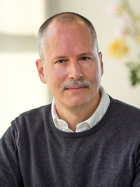 Answered by
Answered by 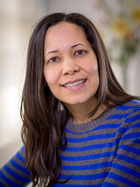 Answered by
Answered by 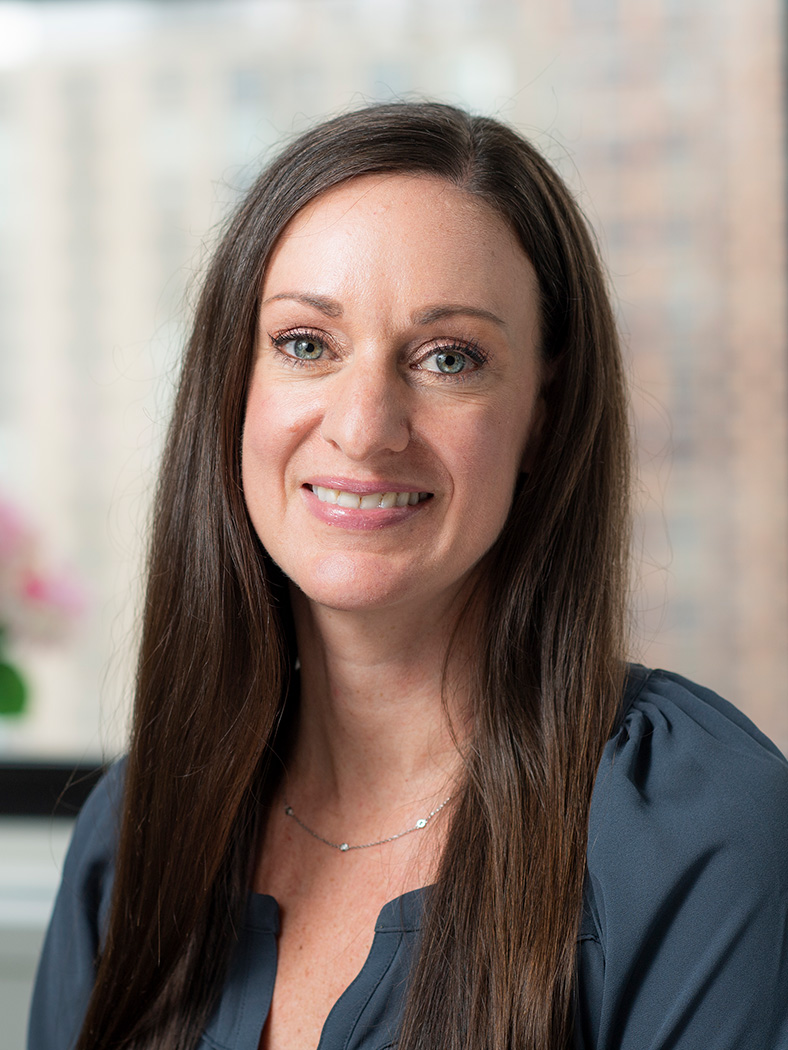 Answered by
Answered by 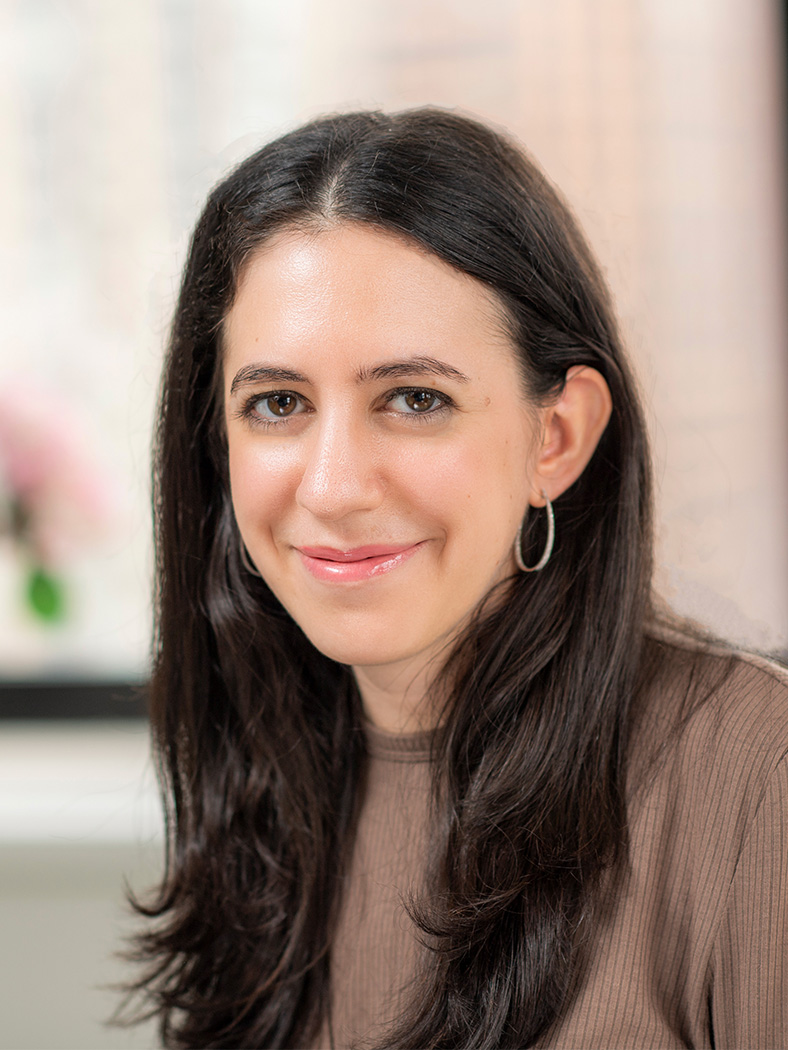 Answered by
Answered by 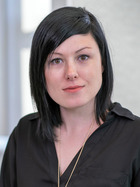 Answered by
Answered by  Answered by
Answered by 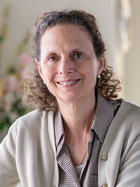 Answered by
Answered by 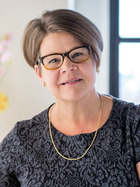 Answered by
Answered by  Answered by
Answered by